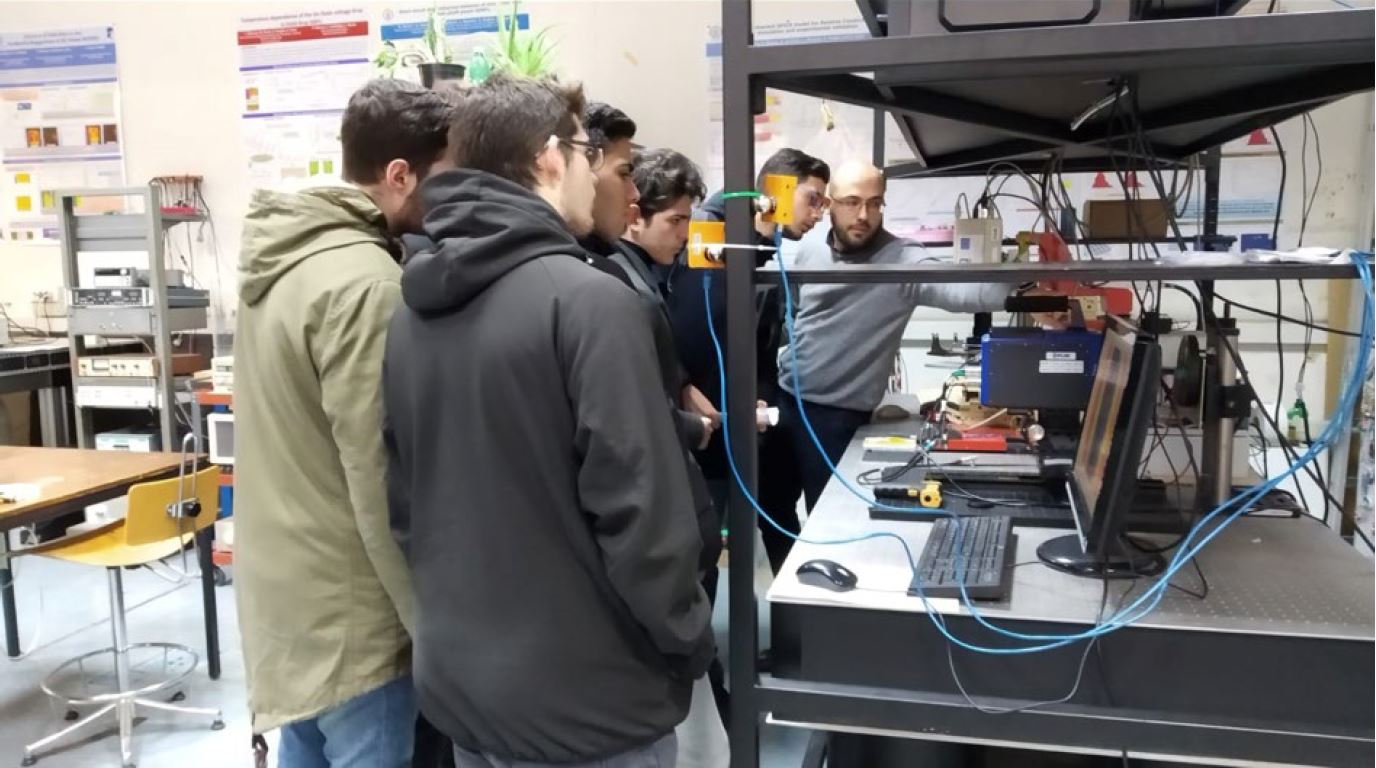Contact us
Call us at
Available 6:00 AM – 5:00 PM (PST) Business Days
Download
Download Manuals, Datasheets, Software and more:
Feedback
The Engineering Philosophy
By University of Naples, Federico II / Jul 11 2019

As an assistant professor at the University of Naples, I spend nearly all my time with students. What can I say? It keeps me young.
It’s not always plain sailing though. My students come to me when an experiment isn’t going the way they want or when they’re feeling a little directionless. And I always say the same thing: do you care about this? Does it make you excited? Anyone can become an engineer. But if you want to get noticed, you need to have passion.
These days, I call it the engineering philosophy
When I was young, I’d listen to the football on Sundays on this orange radio with my dad and brother. One day, it stopped. It just stopped. My dad wanted to go and buy a new one, but I had to know more: this tiny little box that let you hear what was happening somewhere else – what was inside it? And how had it just stopped? Armed just with a screwdriver, I took it to pieces, and saw the green board with one wire disconnected.
I didn’t have a soldering iron (just a candle) but I still managed to fix the broken connection. Just about.
That’s the engineering philosophy. This in-built curiosity for the world, and an almost frantic drive to know more.
When I was younger, I didn’t have the words to describe it
‘Engineering’? I knew I wanted to take things to pieces, but that word hadn’t occurred to me. I thought I wanted to become a technician: I needed to work, to earn money. University wasn’t for me. I enrolled at the technical high school, not the liceo.
When I got there, I started spending more time around electrical circuits. That’s when I realised something was missing. It wasn’t enough just to fix a certain system. I wanted to build, to create, to make systems of my own. I started to think about the word ‘engineering’ – and studying it at university – was that world for me?
I sat with my dad and we talked it through and talked it through. I was scared: I knew an engineering course would be complicated, and I had to juggle it with a part-time job. But my dad said: just try. Try for one year and see how you get on.

So, I did. I tried. And twelve months later, I ended my first year with one of the highest scores in our final exam.
Part-way through my course, I realised the friends I had been asking for help were now coming to me for help. I went for a Master’s, then a PhD, then a post doc, and here I am today.
So, it’s been a step-by-step journey to becoming an engineer. I’ve always had the mindset – I just didn’t have the words to describe it.
The engineering philosophy is also about being curious
For me it is, anyway. My first love is experimenting and testing, which is where power electronics come in. When I was a PhD candidate, I used simulations and experiments to test the reliability of devices and circuits. I started collaborating with car companies who wanted to efficiently convert electrical energy in hybrid cars, thus reducing CO2 emissions."

In particular, I worked in a team to develop innovative testing machines to measure robustness of power transistors (i.e. MOSFETs, IGBTs) during hard working conditions (short-circuit, avalanche breakdown etc.).
Without knowing these things, it’s impossible to safely manipulate renewable energy like solar or wind power.
Recently I’ve been widening my focus to smart sensors and the Internet of Things (IoT). Everything’s coming to life; everything’s becoming ‘smart’ and talking to a network. My work’s still about experimentation, though; like recently, I’ve been tinkering with smart sensors to create ‘intelligent’ tires.
Projects like this make me feel like I’m right at the heart of engineering
Every year, I have to tweak what I tell my students: sometimes it feels like ideas go out of date faster than I can change my slides!
But that’s okay. When everything’s changing so fast, it’s impossible to try and learn everything. I tell my students to focus on knowing how to solve problems, how to find the information they need. If they stay true to that engineering philosophy – the passion, the curiosity – they can’t go wrong.

